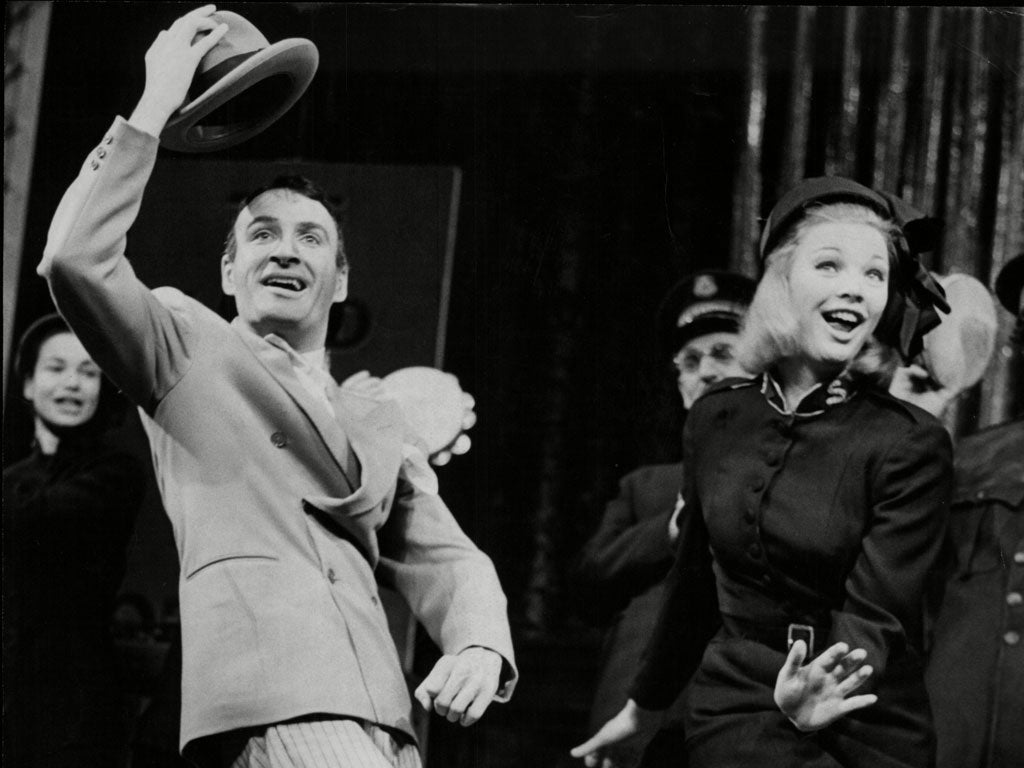Joe Melia: Versatile actor hailed for his 'zest and comic intelligence'

Cheery-faced, with kind eyes and exquisite comic timing, Joe Melia enriched a huge number of stage and screen productions in his 40-year career, from surrealist comedy to crime drama. In 1967 the playwright Peter Nichols identified him as having precisely "the right zest and comic intelligence" to play the lead in the premiere of A Day in the Death of Joe Egg at the Citizen's Theatre, Glasgow, and it was an astute choice. Melia was "almost beyond praise" said one critic, and his performance both in Glasgow and on the play's transfer to the West End helped launch one of the most significant theatrical events of the decade.
He described the work as "like playing West End comedy and Ibsen at the same time." The role was the latest proof of Melia's skill as a comic actor but it also showcased his power at gentle pathos, something he was rarely recognised for but frequently demonstrated to beautiful effect.
Born Giovanni Melia in Islington in 1935, he moved to Leicestershire when war broke out, and was educated at City of Leicester Boy's Grammar School, where he was reserve organist and entertained his fellow pupils with Christmas shows in which he displayed a great gift for mimicry and satire. But alongside this he showed a remarkable flair for languages, and spent his National Service in the Intelligence Corps alongside Dennis Potter, who 20 years later would cast him in his television play "Double Dare". The two were taught Russian at the Joint Services School for Linguists, Melia going on to master eight languages.
After the army he studied languages at Cambridge, but any thoughts of a Foreign Office career became unlikely after he joined Cambridge Footlights. He formed a cabaret partnership with Dudley Moore, Ho Ho! The Moore The Melia and flat-shared with Peter Cook. After Cambridge he went into revue while earning extra money translating plays for the BBC, but his potential was spotted almost immediately, and the Daily Express asked of him in a headline in 1958, "Is This The Comedian Of The Future?" Famously shy of acclaim, Melia replied to the paper with a one-word telegram: "No!"
Touring with the revue Oom-Pah-Pah the following year was a less amusing experience: audiences walked out bemused, and it was briefly mooted that the final performance could be done in reverse order as no one would probably be any the wiser.
He found better material when he took over from Jonathan Miller in Beyond the Fringe in 1962. Other highlights of a busy theatrical career included many hits for the RSC, such as the first revival in 80 years of Wild Oats, an 18th century Irish farce for which Bernard Levin praised him for a performance of "lovely, full-bodied juiciness", and CP Taylor's Good in 1982, for which he won an Olivier Award for Best Supporting Actor.
He was a great favourite for the outrageous works of Peter Barnes, whose nightmarish farces attempted to harness comedy as an instrument for political change, and he excelled in the queasy Leonardo's Last Supper at the Open Space Theatre (1969), and The Bewitched (1974), of which Plays and Players wrote: "Joe Melia is a splendidly devious Jesuit: the twinkle in his eye could be an expression of his inherent arrogance, or it could be self-irony."
His television and film career was even more eclectic, from playing a lovesick gangster in Sweeney! (1976) to regular turns in the Jackanory chair. The aforementioned "Double Dare" for Play for Today cast him as a sleazy literary agent, while also for Play for Today he was one of a group of lifers putting on a Christmas panto in Jimmy O'Connor's eerie "Her Majesty's Pleasure" (1973). He hosted BBC2's ambitious arts show Full House (1973), and in Andrew Davies's A Very Peculiar Practice (1986) he was the author's alter-ego, the traumatised writer-in-residence Ron Rust. He took part in the longest tea break in history while decorating for The Goodies in 1973, and popped up in the grandiose television production of Peter Pan (1976) alongside Mia Farrow.
Particularly interesting is the brooding Four In the Morning (1965), a captivating kitchen-sink drama which hovers around two couples in stagnant relationships who are linked by their involvement with a girl found floating in the Thames. Sparsely populated but strongly cast, the film gave Judi Dench her first leading role on screen.
Other memorable turns included the foreman determined to bulldoze Arthur Dent's house down in The Hitch-Hiker's Guide to the Galaxy (1981), and a haunting performance in one of the best episodes of Public Eye (1969), in which he played a failed comedian who, when asked why he had denied having seen a missing girl replied "I wasn't wearing my glasses. You wouldn't if you'd seen as many sad faces as I have."
Magical little moments like that are what really defined Melia as a sensitive and shrewd clown who delivered the goods with a sparkle whether they were audacious or wistful.
Simon Farquhar
Joe Melia, actor: born London 23 January 1935; married 1962 Flora (died 2008; two sons); died Stratford-upon-Avon 20 October 2012.
Subscribe to Independent Premium to bookmark this article
Want to bookmark your favourite articles and stories to read or reference later? Start your Independent Premium subscription today.

Join our commenting forum
Join thought-provoking conversations, follow other Independent readers and see their replies